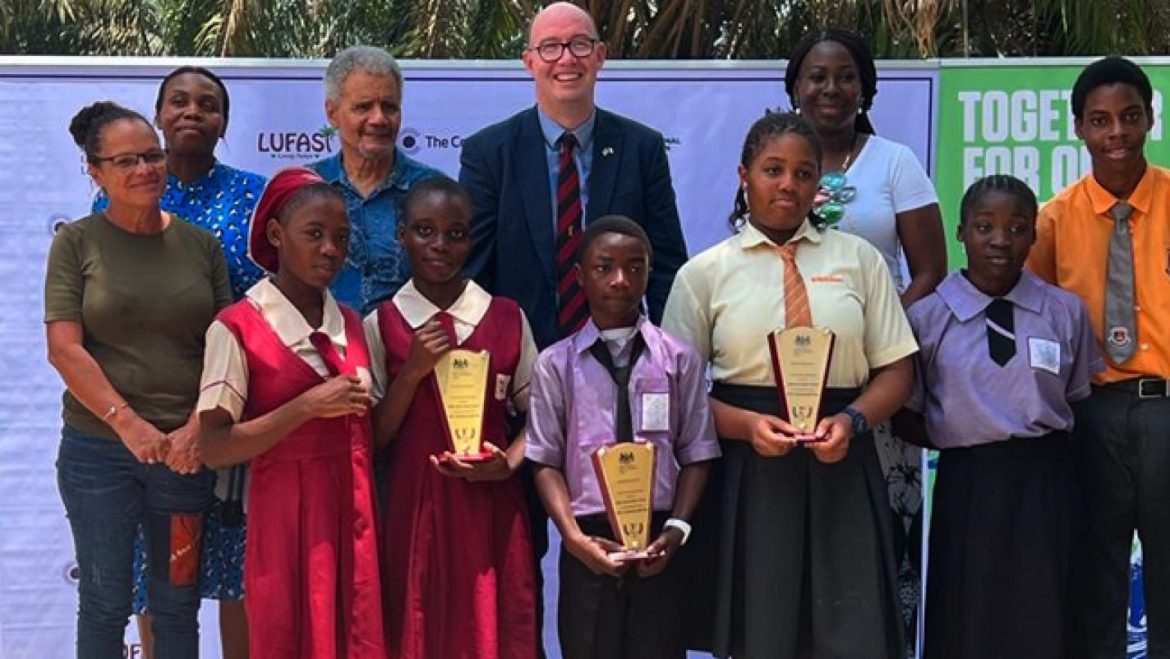To combat climate change and protect the environment, stakeholders should work together, according to Ben Llewellyn-Jones, the British Deputy High Commissioner.
At the 2023 Commonwealth Day celebration held in Lagos’ Lekki Urban Forest Animal Shelter Initiative (LUFASI) Nature Park, Llewellyn-Jones made the following recommendation: “We should constantly work for a sustainable earth, cities, and communities and ensure collaborations with professionals across diverse sectors.”
Environmental stakeholders, the FABE International Foundation, Refine Schools Lekki, Adewusi Memorial School in Koyi, the Olomu Community Junior School, and the Olomu Community Senior School in Ajah Lagos attended the ceremony. The schools held discussions on environmental sustainability as well as displays on recycling and turning garbage into useful items.
He said that Britain has been working with the Nigerian government to reduce the effects of climate change through agricultural innovation, flood and water control management, infrastructure support, and expanding industries that are impacted by the change in weather patterns.
“We learn from Nigeria and they also learn from us (knowledge-shared) through agricultural innovation by providing seeds and plants that could survive adverse conditions and yield more produces to feed the population in trying times. The relationship between Nigeria and Britain has been a symbolic one,” Llewellyn-Jones said.
He disclosed that the UK government has also been helped in the areas of weather technology, conservation and deforestation, desertification and climate change. “When you cut a tree, it takes 10-20 years to grow a tree, so don’t cut down one, we need oxygen for life–support.”
Read Also: afdb-president-calls-for-swift-action-to-lessen-world-dependence-on-fossil-fuel
“Tree planting reduces erosion, mitigates climate impacts and increases awareness of the importance of nature-based solutions to climate change.
“British High Commission had supported and planted over 5,000 trees in both Abuja and Lagos.
“We are here today to celebrate with LUFASI Nature Park for spending 25 years of planting the right trees and keeping right plants, maintaining mangroves, wetlands, as well as animals to reduce climate change and global warming. Today,l am here in Nigeria on a sunny day and when it rains we feel the effects of climate change. However, spending time with nature is very therapeutic and healing,” he added.
On UK’s new plan for Nigeria on technology, he said Britain has been helping Nigeria to lower its emissions by providing efficient and state -of -art methods to reduce environmental hazards.
The significant part of the event includes planting a tree plant in memory of the British Monarch, late Queen Elizabeth at the LUFASI Nature park.
The high point of the programme was when the British Deputy High Commissioner and their wife released two owls (birds) to the wild. The birds were rescued from predators and caged, cared and for over five months at the park.
Speaking, Chairman, LUFASI, Desmond Majekodunmi, appealed to governments, who have access to funds or resources from foreign governments to take care of the environment and climate change.
He advised that such funds should be used judiciously for environmental programmes and other related purposes.
Majekodunmi revealed that the Shinrin-Yoku- forest bathing, which originated in Japan in the 1980s has been replicated in LUFASI Nature Park. He also spoke on the importance of hooded vultures and pangolins.
Story adapted from The Guardian
